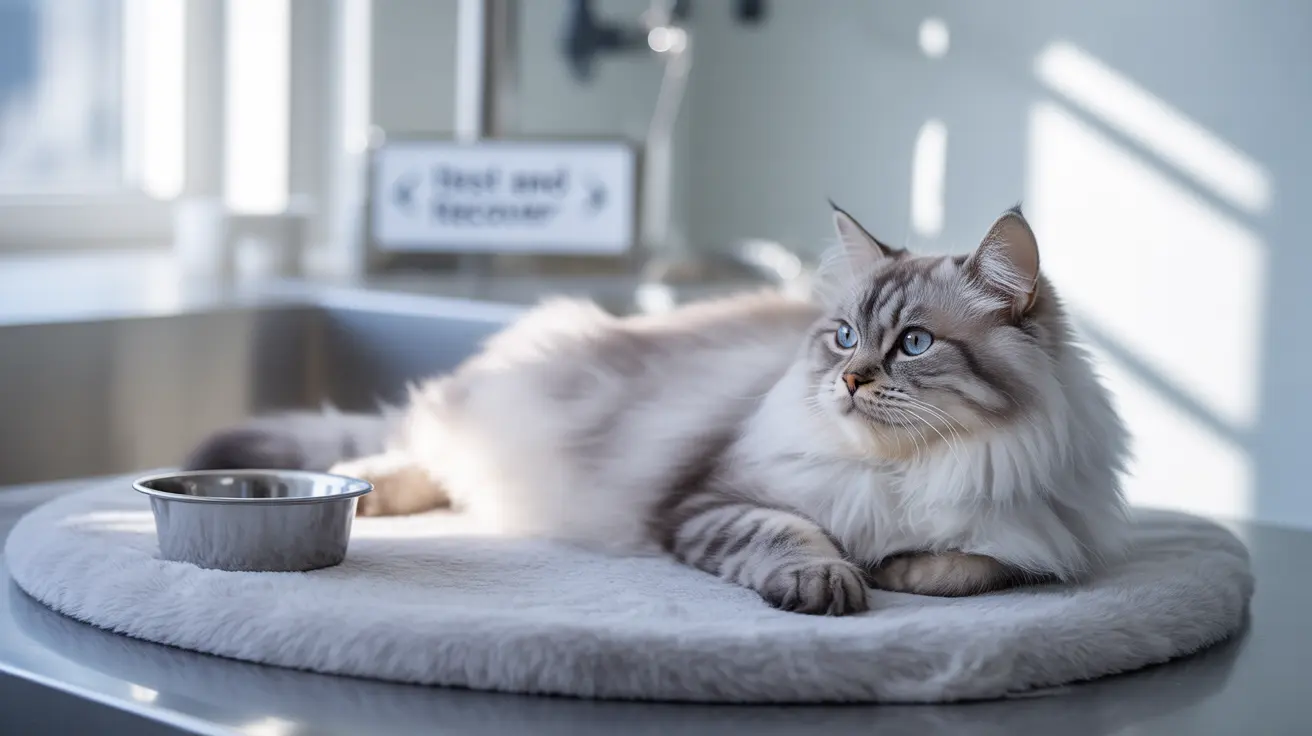When your beloved feline needs overnight veterinary care, understanding the potential costs can help you make informed decisions and prepare financially. Whether it's for post-surgery monitoring, emergency treatment, or intensive care, overnight stays at the vet can vary significantly in price depending on various factors.
In this comprehensive guide, we'll break down everything you need to know about cat overnight vet stay costs, including typical price ranges, factors that influence expenses, and ways to manage these unexpected veterinary bills.
Understanding Basic Overnight Stay Costs
The base cost for a cat's overnight stay at the veterinary hospital typically ranges from $600 to $1,700 per night. However, this can increase substantially based on required treatments and the level of care needed. Basic observation stays might cost as little as $300, while complex cases requiring intensive monitoring and treatment can exceed $2,200 per night.
Factors Affecting Overnight Stay Expenses
Several key elements influence the final cost of your cat's overnight veterinary stay:
- Geographic location and facility type
- Level of care required (basic monitoring vs. intensive care)
- Necessary diagnostic tests and procedures
- Emergency or after-hours admission
- Duration of hospitalization
Common Services and Their Costs
Diagnostic Tests and Monitoring
Most overnight stays include various diagnostic procedures:
- Blood work: $80-200
- X-rays: $150-400
- Ultrasound: $300-600
- Continuous vital sign monitoring: $100-300 per night
Medical Treatments and Procedures
Additional treatments often necessary during overnight stays include:
- IV fluid therapy: $50-150 per day
- Medication administration: $25-150 per day
- Wound care: $50-200
- Emergency surgery: $1,500-5,000
Regional Cost Variations
Veterinary costs can vary significantly based on location:
- Urban areas: Generally 20-40% higher than rural locations
- Specialty hospitals: Often charge premium rates but provide advanced care
- Emergency facilities: Usually include additional after-hours fees
Planning for Overnight Veterinary Expenses
Pet Insurance Options
Pet insurance can significantly reduce out-of-pocket expenses for overnight veterinary care. Many policies cover 70-90% of eligible expenses after meeting the deductible. Consider getting insurance while your cat is young and healthy to avoid pre-existing condition exclusions.
Financial Preparation
To prepare for potential overnight vet stays:
- Maintain an emergency pet fund of at least $1,500-2,000
- Research payment plan options at local veterinary facilities
- Consider applying for dedicated veterinary credit cards
- Look into local pet care assistance programs
Frequently Asked Questions
How much does it typically cost for a cat to stay overnight at the vet?
The typical cost ranges from $600 to $1,700 per night, though prices can vary significantly based on location, required care, and specific treatments needed.
What factors influence the cost of an overnight vet stay for my cat?
Key factors include the facility's location, level of care required, necessary diagnostic tests, emergency admission status, and duration of hospitalization.
How can I prepare financially for unexpected overnight veterinary care for my cat?
Consider purchasing pet insurance, maintaining an emergency fund, researching payment plans, and exploring veterinary credit options.
What types of treatments and services are usually included in a cat's overnight hospital stay?
Standard services typically include monitoring, medication administration, IV fluids, and basic nursing care. Additional diagnostics, procedures, or treatments incur extra charges.
Does pet insurance cover the cost of emergency overnight stays for cats at the vet?
Most pet insurance policies cover emergency overnight stays, typically reimbursing 70-90% of eligible expenses after meeting the deductible. However, pre-existing conditions are usually excluded.
Conclusion
While overnight veterinary stays for cats can be expensive, understanding the potential costs and planning ahead can help manage these necessary medical expenses. Consider pet insurance, maintain an emergency fund, and discuss treatment options and costs openly with your veterinarian to ensure the best care for your feline companion while managing expenses effectively.






